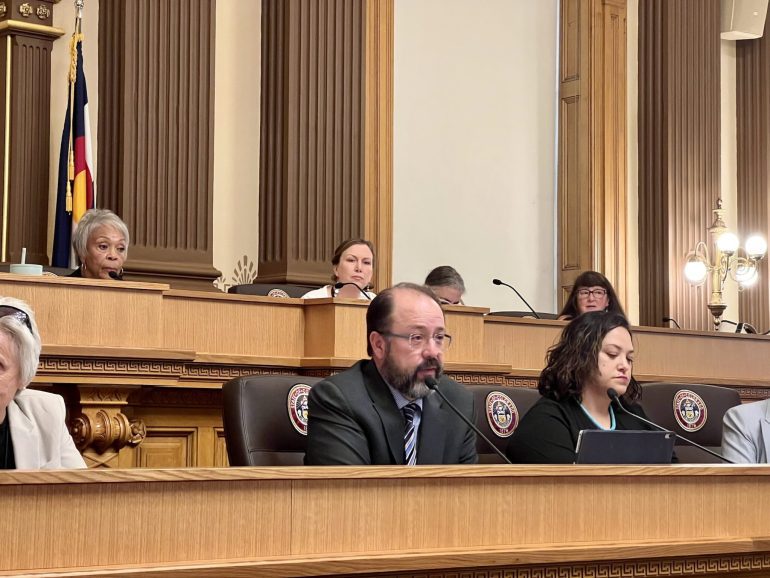- Colorado contemplates pioneering AI regulations to address discriminatory practices and biases.
- Senate Bill 24-205 mandates businesses to report instances of bias and ensure accountability in AI interactions.
- Despite initial legislative hurdles, opposition from the business and tech sectors highlights concerns over stifling innovation.
- Stakeholders advocate for collaborative approaches to crafting nuanced regulations aligned with AI’s dynamic nature.
- As the bill progresses, Colorado faces the challenge of striking a balance between fostering innovation and mitigating AI’s potential risks.
Main AI News:
Colorado stands on the brink of becoming a pioneer in the realm of regulating generative artificial intelligence (AI), navigating the delicate balance between curtailing potential harm and fostering innovation and business growth.
The proposed Senate Bill 24-205 represents a significant step towards curbing discriminatory practices associated with AI, mandating businesses to disclose instances of bias to state authorities. The bill’s passage through its initial Senate committee hearing, albeit on a tight 3-2 party-line vote, underscores the urgency and complexity of the issue. This move coincided with similar legislative strides in Connecticut, reflecting a growing trend among states to forge ahead with AI regulations amid federal indecision.
“This bill isn’t about instant revolution,” remarked Senate Majority Leader Robert Rodriguez, emphasizing its foundational role in establishing accountability frameworks against biases and discrimination inherent in AI interactions. Rodriguez, an influential figure in Colorado’s legislative landscape, spearheaded previous initiatives such as the state’s consumer data privacy law, illustrating his commitment to safeguarding citizen rights amidst technological advancements.
Crafted through meticulous deliberations and a strike-below amendment process, SB 24-205 imposes comprehensive obligations on AI adopters. Notably, it mandates consumer notification regarding AI interactions, necessitates risk assessments, and mandates reporting of discriminatory incidents to the attorney general’s office. These measures aim to mitigate potential biases in critical areas like hiring, housing, and healthcare, where AI’s influence can inadvertently perpetuate systemic disparities.
Despite its noble intentions, the bill faces staunch opposition from the business and tech sectors, wary of premature regulatory interventions stifling innovation. Critics draw parallels to the nascent days of the internet, cautioning against inhibiting AI’s transformative potential with overly burdensome regulations.
Eli Wood, founder of Denver-based Black Flag Design, contends that while regulatory oversight is essential, the current bill overlooks AI’s dynamic nature, potentially impeding small businesses’ ability to harness its benefits for societal progress. Wood’s sentiments echo a broader sentiment among opponents, advocating for a collaborative approach involving stakeholders to craft nuanced regulations aligned with technological realities.
In light of these divergent views, consensus eludes the legislature on the optimal timing and scope of AI regulations. Michael McReynolds, from the Governor’s Office of Information Technology, underscores the inherent challenges of legislating in a rapidly evolving technological landscape, urging prudence to avoid unintended consequences.
As the bill progresses towards a Senate vote, the spotlight remains on Colorado’s lawmakers to strike a delicate balance between fostering innovation and safeguarding against AI’s potential pitfalls. With an implementation deadline slated for October 2025, stakeholders brace for further deliberations, cognizant of the profound implications AI regulations hold for the state’s economic and social fabric.
Conclusion:
The deliberations surrounding Colorado’s AI regulation underscore the evolving dynamics between innovation and governance in the technology landscape. While the proposed bill reflects a proactive stance towards addressing AI biases, opposition from industry stakeholders highlights the inherent challenges of balancing regulatory imperatives with fostering innovation. For the market, this signals the need for adaptable strategies that navigate regulatory landscapes while leveraging AI’s transformative potential responsibly and ethically.

